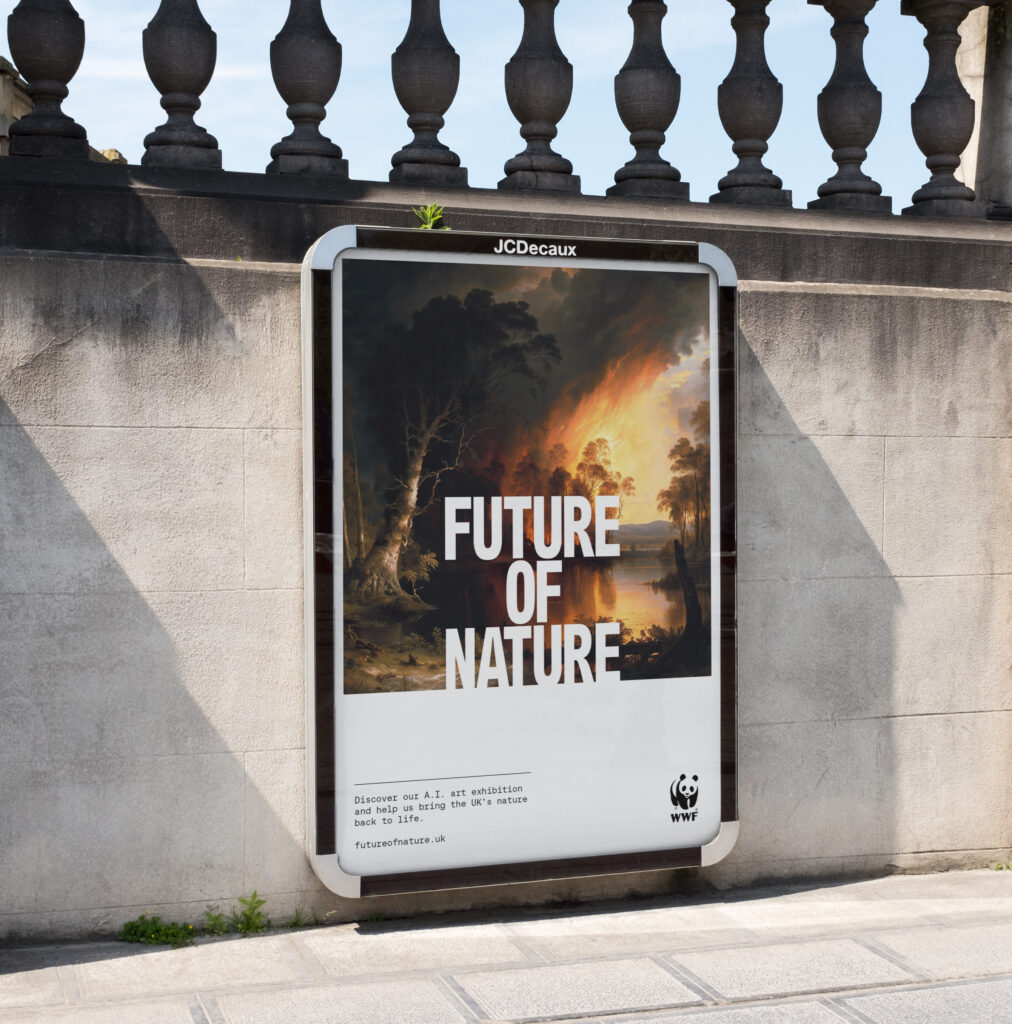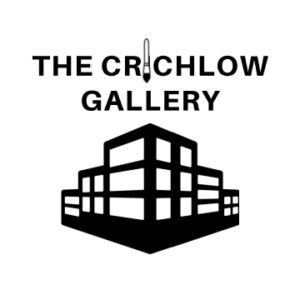To raise awareness of the need to preserve the UK’s nature and wildlife, WWF has curated an exhibition of images created by artificial intelligence (AI) imagining what the future of nature in the UK might look like if we continue to destroy it, or if we choose to protect and restore it. Each image is dated with the year it imagines and is accompanied by a description of real-world scenarios the subject matter faces today.
Composed in the style of British Romanticism, the exhibition imagines how this historical movement might have witnessed and recorded the future of our natural world, and while the paintings themselves are not real they show genuine possibilities.
This includes a burning ancient woodland titled Highland Wildfires (2034) and an overflowing landfill titled Sussex Landfill (2067), plus distressing imagery of the three porpoises killed daily in the UK in Innocents (2023). Images that show a more hopeful future include a rambler in the Yorkshire Dales titled Spring in Ingleborough (2023) and a green landscape full of renewable energy sources titled Turbines (2075).
Lisa Lee, executive director of communications at WWF, commented: “These powerful AI images show the dangerous path we are heading down and how urgently we must act to restore nature at home. The UK is one of the most nature-depleted countries in the world: our rivers are dying, our native birds and animals are in sharp decline and we are degrading our land.
“We can all make a difference, but we need action from the government and business to divest from fossil fuels, stop pollution and end harmful farming.”
The exhibition was created in partnership with art collective Uncommon Creative Studio and is being promoted on the iconic screens at Piccadilly Lights in the run-up to the exhibition.
Want to learn more about the most important issue of our time? Senior reporter Ellen Ormesher will explore the role advertising and marketing play in facilitating the climate crisis. Case studies, tips, interviews and more. Register your interest
This content was originally published here.



